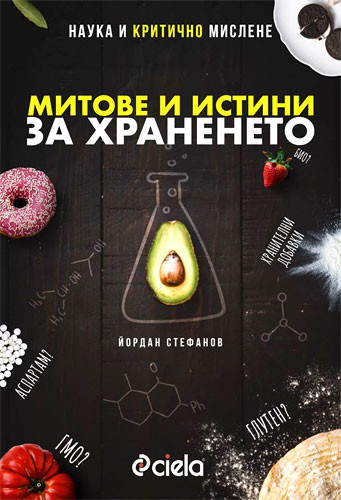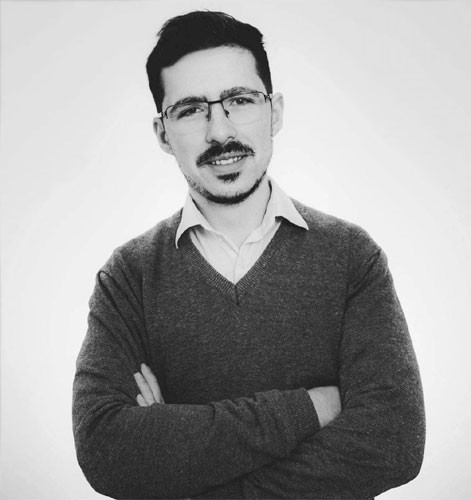 Necessity, pleasure, or solace – whether we shall give food the status of asource of joy or be forever slaves to our feeling of guilt depends on the way we look at food. To dispel popular fallacies and rid us of our fears, a book recently appeared on the market that, based on scientific method, gives us back the enjoyment of good food.
Necessity, pleasure, or solace – whether we shall give food the status of asource of joy or be forever slaves to our feeling of guilt depends on the way we look at food. To dispel popular fallacies and rid us of our fears, a book recently appeared on the market that, based on scientific method, gives us back the enjoyment of good food.
But are flour, salt and sugar really poison, does genetically modified food harm our health, what do we need to know about E numbers, probiotics, prebiotics and fermented food, do we need to exclude meat or some other staple food from our diet – the answers to these and to many other questions can be found in the book by microbiologist Yordan Stefanov Myths and truth about food.
 “People say there are chemicals in the food, but the truth is that food itself is made up of chemicals, as it is composed of chemical compounds,” the author says, commenting on one of the most widespread myths. “That is why to say that we should only eat food without chemicals is an absurdity. On the other hand it gives no one pleasure to eat artificial food, the product of chemical technology, still, it cannot be said to be dangerous. There is no conspiracy against the public. Most chemical compounds used as supplements are in fact completely natural and are contained in all fruit and vegetables. But the truth is that people fear the unknown, and the names of most of these compounds mean practically nothing to them.”
“People say there are chemicals in the food, but the truth is that food itself is made up of chemicals, as it is composed of chemical compounds,” the author says, commenting on one of the most widespread myths. “That is why to say that we should only eat food without chemicals is an absurdity. On the other hand it gives no one pleasure to eat artificial food, the product of chemical technology, still, it cannot be said to be dangerous. There is no conspiracy against the public. Most chemical compounds used as supplements are in fact completely natural and are contained in all fruit and vegetables. But the truth is that people fear the unknown, and the names of most of these compounds mean practically nothing to them.”
Yordan Stefanov says there is no way the food sold in stores can be dangerous because it undergoes strict monitoring. And Bulgaria’s control authorities are subject to European directives and they aim to push food manufacturers to comply with the quality control system which is also a factor of prevention. “Manufacturers have an interest in keeping their products safe, so they will sell,” the scientist says.
Though people are suspicious of any unfamiliar word on the label, for quite some time products with exotic-sounding names have been finding their way to our tables, and have even been dubbed “superfoods”. But can chia, quinoa or spirulina really take the place of beans or lentils in terms of nutrients?
“It’s a fad, there is no other way to explain it,” Yordan Stefanov says. The thing about fads is that there is no scientific reasoning behind them, they just appear – usually coming from USA and Western Europe, to reach Bulgaria a few years later. And no one can explain what makes these products any better than Bulgarians products, still, people buy and eat them. Yet the Bulgarian beans, lentils, chicken and animal offal that are part of our diet are just as good. But maybe when you say you eat chia, that is a status symbol, and that is why people choose to buy it.”
Raw food diet, vegetarianism, all sorts of modern diets – “none of them make sense,” the scientist says. A healthy diet is a wholesome diet, he adds, a diet that does not deprive us of given types of food, nor does it push us to overeat.
“When I sit down to eat I prefer to have fresh fruit and vegetables, and a large variety of them,” Yordan Stefanov says. “It is best if they are local – grown by a granny in a village. These are products that are fresher and tastier than imported fruit and vegetables which are often picked while still unripe which damages the taste. Of course we should add to our meal a good source of proteins, like meat, and it is not a good idea to avoid it. And if we feel like it, we could include dessert – it may not be rich in nutrients but it gives us such pleasure. Because, and this should not be forgotten, food is pleasure.”
And as holiday season is approaching, when we tend to skip from diet to gluttony, we should not worry. “After all, it comes round just once a year and we can afford to ignore the boundaries we have set ourselves,” says Yordan Stefanov.
English: Milena Datnova
Photos: courtesy of Yordan StefanovBulgarians across the country are welcoming the New Year with various initiatives. More than 20 members of the club of karate and yoga coach Emil Zlatev in Varna traditionally swam in the sea on January 1. They say that they never..
The President of the Republic of Bulgaria Rumen Radev has congratulated all Bulgarians at home and around the world on the arrival of the New Year 2025 and wished them peace, health and prosperity. "The world is sending off a year..
Traditionally, the citizens of Sofia and guests to the capital can welcome the New Year 2025 together at the central Knyaz Alexander I Battenberg Square. The celebration today, December 31, begins at 21.30. Some of the most popular Bulgarian pop and..
Romania becomes the largest natural gas producer in the EU Romania was the largest natural gas producer in the EU in 2024..

+359 2 9336 661
